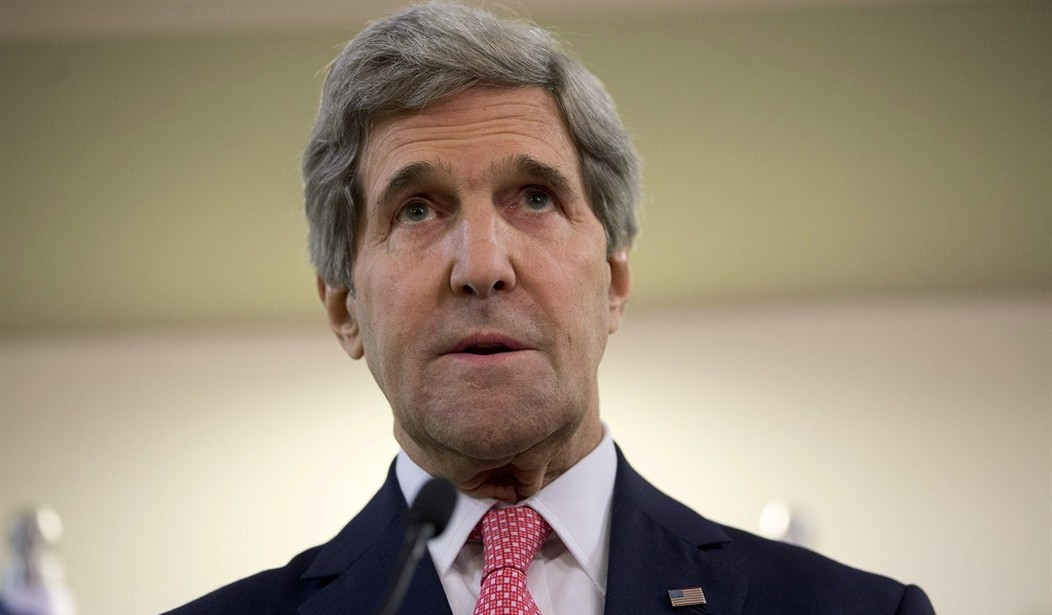While we have been totally focused, for the past two months, on the amount of time it takes a webpage to load on healthcare.gov, the rest of the globe appears to be continuing to spin.
And it appears to be spinning away from us.
After more than a decade of what is known as kinetic action in the Middle East and Southwest Asia, Americans are tired of being the alpha dog in the global pack.
According to a poll released by the Pew organization,
The public thinks that the nation does too much to solve world problems, and increasing percentages want the U.S. to "mind its own business internationally" and pay more attention to problems here at home.
Good thing, too, because everyone from China and Russia to Saudi Arabia appear to have come the conclusion that they want to grant the American public its collective wish.
This is not helping President Barack Obama's overall standing with the public. According to the poll the approve/disapprove of the President's handling of foreign policy is way under water at 34/56. "The public also disapproves," the poll says, "of his handling of Syria (30/57), Iran (37/53), China (30/52), Russia (37/47) and Afghanistan (34/57) by wide margins."
Seventy percent of the respondents think the U.S. is "less respected" by other countries than in the past, but less than half (46%) see that as a major problem.
Good thing, too.
Over the past week or so, China declared sovereignty over islands in the East China Sea that Japan has also said it owns. To make the point of its claim it declared an "air defense identification zone" over the islands leading the U.S. to send two B-52 bombers directly into the air defense identification zone without, presumably, identifying themselves.
Recommended
The U.S. government did suggest, however, that commercial airliners do whatever they do to identify themselves if they were flying over the disputed airspace.
In Syria, which has dropped off the front pages after Russia stepped in regarding the chemical weapons issue, continues to be an international horror show. According to the New York Times, observers now say that some "126,000 people have been killed since the conflict began in March 2011." Additionally an estimated "seven million people in Syria are in urgent need of food and medical assistance, and that Syrian refugees in neighboring countries will total three million by year's end."
That was the one about crossing a red line, you may remember.
Saudi Arabia, which has previously announced it wants to unwind its cheek-by-jowl relationship with the U.S. sent the head of its security service, Prince Bandar, to meet in person with Soviet President Vladimir Putin to discuss issues of mutual importance.
Russia, for its part, wielded a really big stick by convincing the President of Ukraine, Viktor Yanukovych, to turn down a closer economic relationship to the European Union - a deal that was all but signed.
That has led to demonstrations by hundreds of thousands of Ukrainians in Kiev protesting what many see as a sharp return to Ukraine being a vassal state of Russia.
According to CNN:
"Russia threatened its neighbor with trade sanctions and steep gas bills if it forged ahead with an EU deal, but promised deep discounts on natural gas if it were to join the Moscow-led Customs Union instead."
So, where are we? That's Syria, Saudi Arabia, Russia, Ukraine, and China all rotating in orbits that no longer intersect with that of the United States'.
It is becoming clear that the 21st Century will not be the "second American century." If that is the case then the challenge for President Obama is: Will the United States be like the U.K. - involved in, and respected for, its participation in world events?
Or, will we become like France, ridiculed by the world when we try to take a seat at the grownup table and try to influence events.
Which would be, as Macbeth put it in Act 5, Scene 5:
A tale told by an idiot, full of sound and fury signifying nothing.

























Join the conversation as a VIP Member